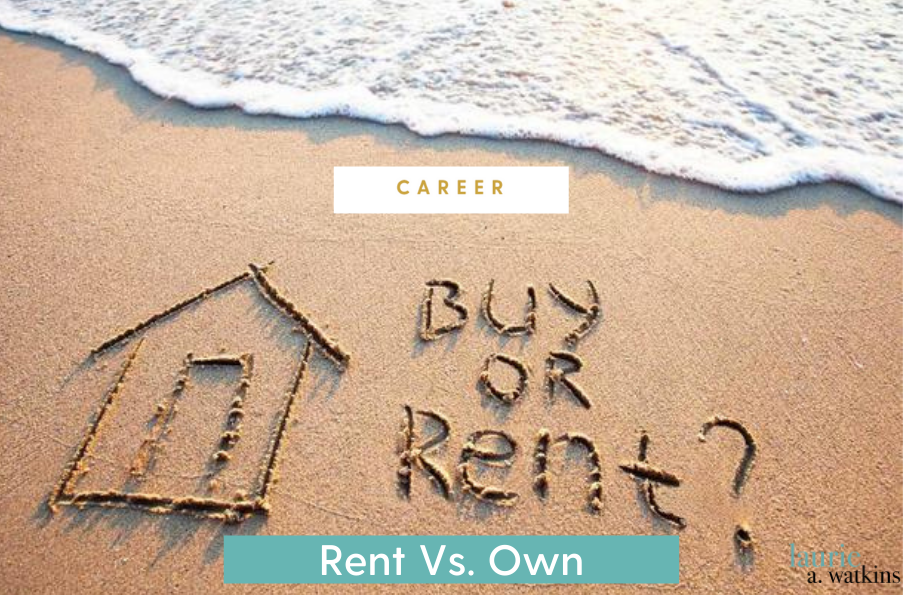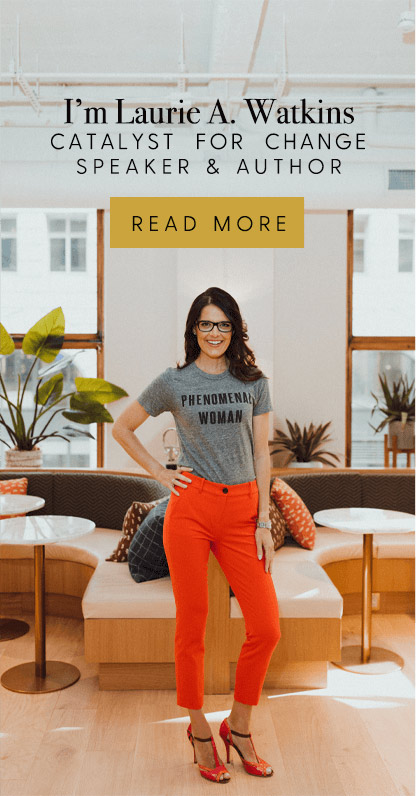To rent or to own? That is the question! It is also a very personal, time dependent decision that no one else can make for you. It can deeply affect your lifestyle and can also be something that changes frequently throughout your life.
Whether you rent or own can have an impact on how much money you have left at the end of each month, how much you have in savings over the years, and your general financial portfolio.
There are people who own their home and it’s the perfect choice for them. Then there are those that buy a house because they want to put down roots, get the tax benefits, or keep up with their peers, when in reality they would just be better off renting. Others rent a place because they want the flexibility to be able to move whenever they want, have minimal responsibility of their property, know exactly what they will spend each month, and plenty of these people could likely afford to purchase a home. There is simply SO much that goes into the decision.
While the process of buying and owning a home is extremely emotional, it is also a huge business in the United States. From real estate agents to mortgage lenders to banks to contractors to inspectors, it can take away from the “American Dream” mindset of owning a home. While owning can bring you a sense of pride in ownership, or even a sense of community, it may not be the right choice for people who have a more nomadic lifestyle or those without a serious partner or children to keep them in one place. Changing your mind about where you want to live is simply more expensive when you own your home.
Financially speaking, of course there are incentives to owning property like tax benefits and increasing your financial portfolio. However, some costs that are almost always associated with owning your home include: property taxes, repairs, garbage pick-up, utilities, landscaping, HOA fees, and insurance beyond just renter’s insurance.
Investopedia gives the example of, “Perhaps the biggest throwaway expense is mortgage interest, which can make up nearly all of your monthly payments in the early years of a long-term mortgage. Take this typical scenario: You borrow $100,000 at 4% for 30 years. Your first monthly payment will be $477.42, of which $333.33 is interest, and $144.08 is principal. It will be about 13 years before more of your monthly payment goes toward principal than toward interest. In total, you’ll lose $71,869.51 in interest (though, admittedly, you’ll recoup some of that in tax deductions).”
This is certainly something to consider. How will that affect your mental health? Knowing you still owe money on a property for so long plus all the interest and unexpected costs that come up from owning a home.
Then there are renovations. Living through renovations can be extremely stressful and exhausting and overwhelming. Oftentimes, the projects end up taking longer than you originally thought and tend to cost more too. There is also no guarantee you will get back all the money you put into the house when you go to sell. The market is extremely fluid and can change unexpectedly.
The decision to buy a house isn’t all about finances necessarily. There can be other factors of course, like comfort or the vision for your life. In addition, the intended length of stay can have an enormous impact on whether you take the plunge to purchase property. Putting down roots can feel great, especially if you have a family or have a desire to send your children (or future children) to a certain school.
I have been a homeowner in the past when I lived alone in Florida, and then again in California. At the time, it was the right decision for me and my husband given our circumstances. However, we are currently renting in Florida. For our current career situations, it is great to know we have the flexibility to move whenever our lease is up.
We do not look at renting as “throwing away money” as renting still gives us a place to live. I also find I spend less time worrying about things that could go wrong with our home or wondering when I will find time to do certain home projects. I don’t spend time searching for plumbers or painters, that is no longer something that takes up any of my time. Usually a simple call to the property manager gets it done pretty quickly.
Many rental properties also have exceptional amenity options like pools, gyms, grill areas, or other things that would be additional expenses if you owned a home. Not paying to be a member of a public pool, or have a gym membership, or buying a grill are all money savers if you live in an amenity property. And if you rent, you also don’t have to pay the monthly HOA fees… the landlord does.
Another amazing benefit of renting is that you know exactly how much you will spend each month. Some places even include utilities so that may not fluctuate as much as if you own a home. If your washer/dryer breaks, or your dishwasher, or really anything, it is usually the responsibility of the landlord and not you. However, if you own your home, your new roof could cost you $18,000.
Renting can also be very helpful and conducive to certain lifestyles. People who need to travel a lot for work, for example, benefit greatly from renting. Not owning property can also help when making plans for the future. People who have recently graduated, or just started working, or newlyweds, or simply don’t quite know what they want to do with their lives or careers should not feel guilty about choosing to rent over purchasing a home.
Renting is not a financial guarantee, though. Rent is able to go up with each lease renewal. If your property manager or landlord sells the property, you could have rushed moving costs. Rent does not give you tax deductions, equity, or rising property value benefits.
Being a renter can also limit some of your creative spirit for your space. You usually have less freedom to renovate as there are limitations in your lease or what the landlord may contribute to financially.
My blog post next week will be all about tips on how to save money for financial strength and self-care. Here is a preview of some tips when making the decision to rent or buy:
- Don’t listen to what other people think, make the choice for yourself.
- Don’t let being single, married, unemployed, etc. be the only factor in your choice. Look at the big picture.
- Don’t compare yourself to your peers: what others are doing may or may not be the best thing for you.
- Meet with a professional financial planner. Getting expert advice can never hurt!
- Try to be sure you have an emergency fund/savings fund to fall back on no matter if you rent or buy.
- Make a five-year plan for your life, that may help you decide what the best housing option is for you.
Now, I want to hear from you. Please comment, this is a topic my team and I are passionate about. We want to serve you as best as we can, and we want to know where you feel like things have gone wrong for you in the past.






